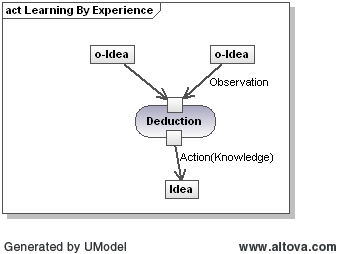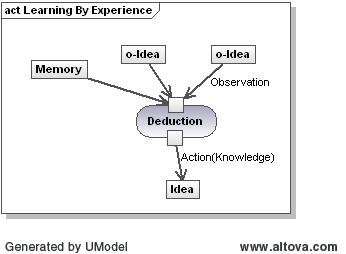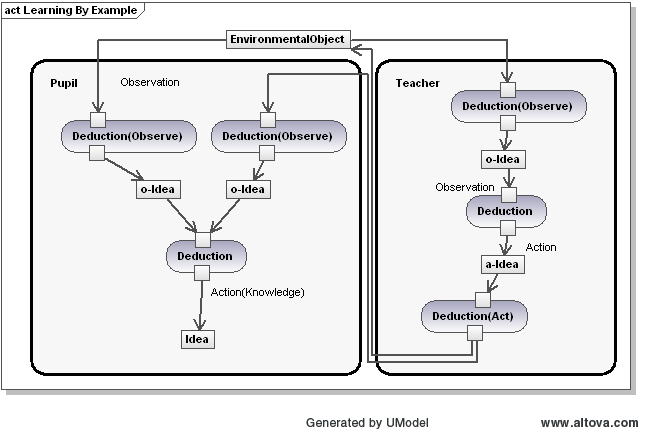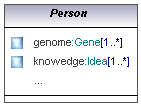Evolution of Ideas
Overview
This model for the evolution of ideas builds on three elements observations, deductions and actions as described in the article model of thought.
Three basic processes are identified for the evolution of ideas (i.e. learning):- Learning through experience: where observations, particularly linked to previous actions, results in new or updated ideas (knowledge).
- Learning by example: where the observation of the actions of another person results in new or updated ideas.
- Learning through communication: where observation of the physical representation of ideas (e.g. speech, writing, art) results in new or updated ideas.
Learning through Experience
The model of learning through experience builds on the concepts of as described in model of thought with deductions from observations leading to an action resulting in the creation of new idea(s) or updating existing idea(s) which form the knowledge of a person.
This is representing in the following diagram:

Generally, the process of learning through experience uses a memory of recent observations and
actions as part of the learning process as illustrated below:

Example
- Observe bullet hitting target too high.
- Deduce gun is being aimed to high.
- Knowledge that the gun when fired goes too high .
Learning by Example
This model is an extension of the above model where the observations come from two sources:- a teacher which carries out previously learnt actions, which are observed by a pupil,
- the resulting impact of those actions on the environment.
 [teacher:Person demonstrates, pupil:Person observes and learns.]
[teacher:Person demonstrates, pupil:Person observes and learns.]
Communication of Ideas
[author:Person writes ideas to Media (sub-class of Environmental Object] [reader:Person observes media]An Idea that is essential to human evolution, is communication.
